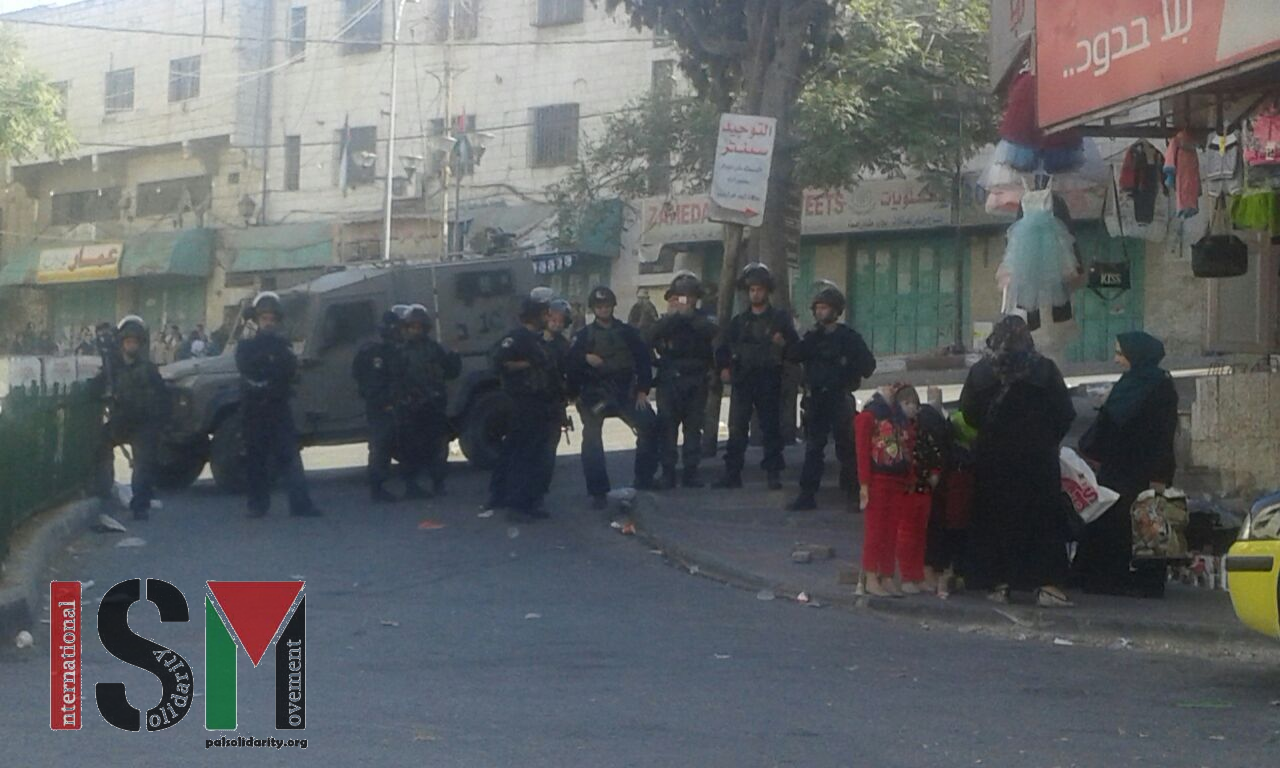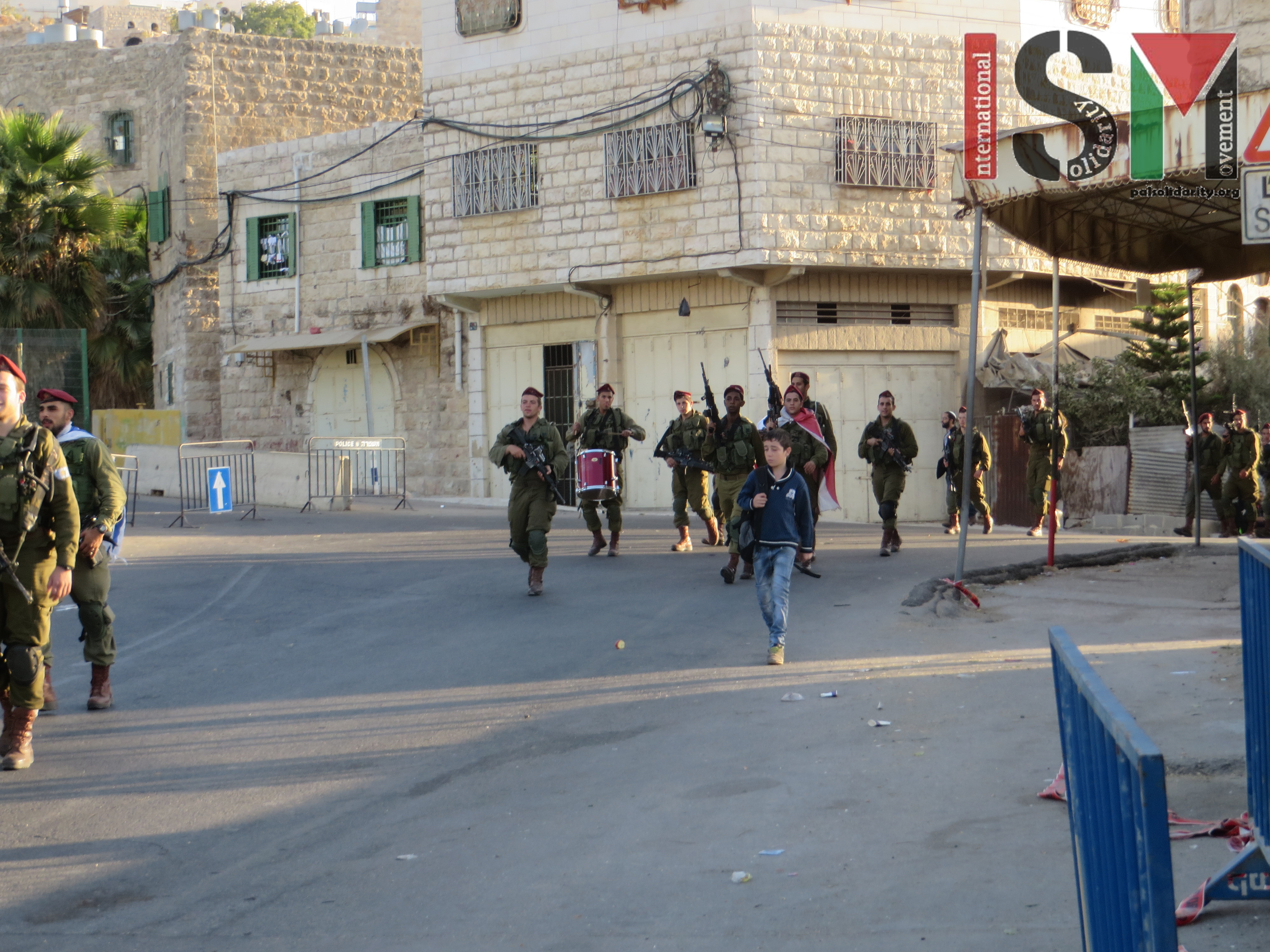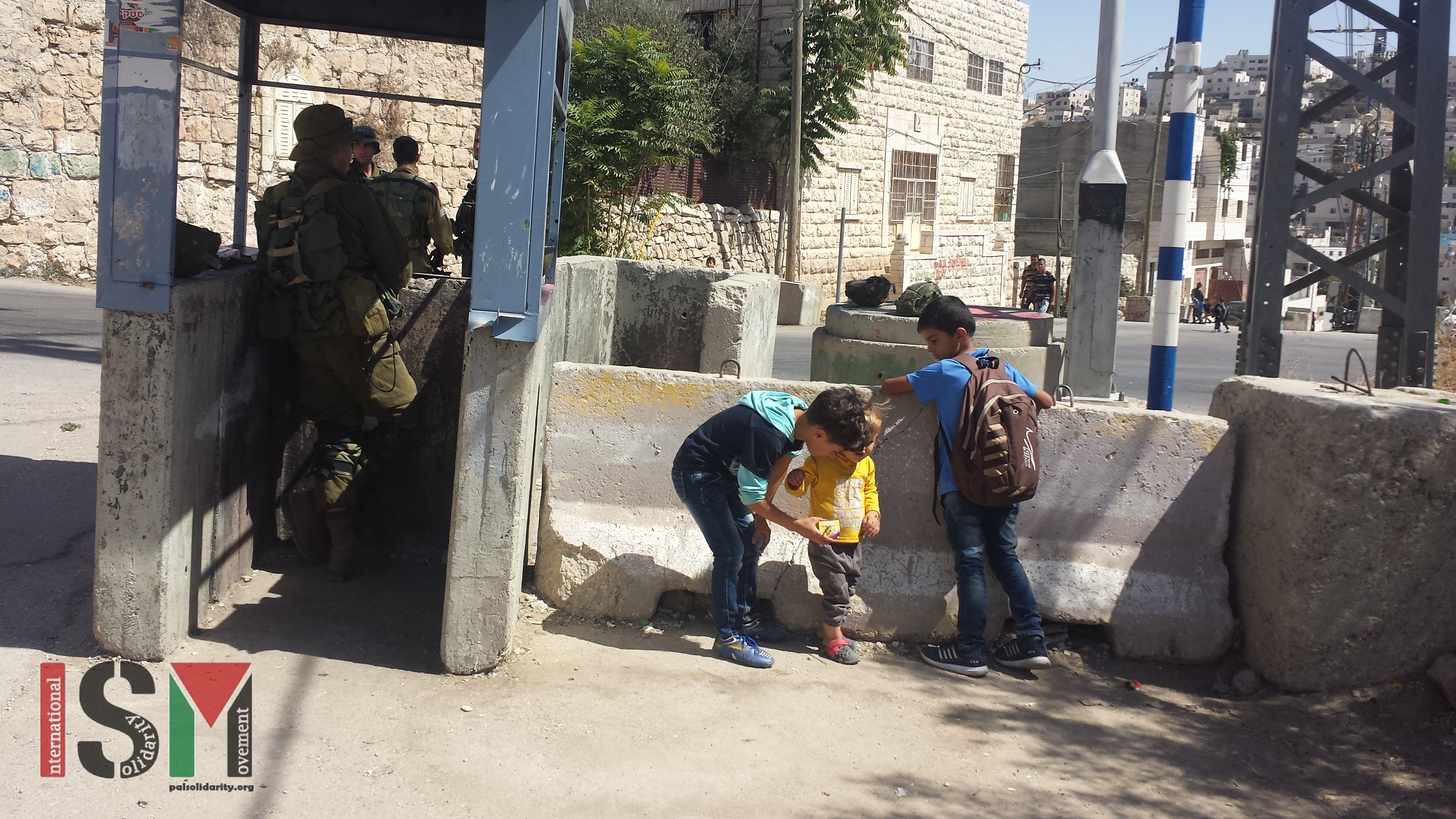Tag: Settlement
-
Israeli forces shut down Palestinian street for Sukkot tour in occupied al-Khalil
20th October 2016 | International Solidarity Movement, al-Khalil team | Hebron, occupied Palestine Shortly after noon on October 19, Israeli Forces began congregating on the militarized H2 side of the Shuhada Street checkpoint in occupied al-Khalil. A massive gathering of international Jewish tourists and settlers from the nearby illegal Israeli settlements followed shortly after. This…
-
Photo story: Feast of intimidation, oppression and illegall annexation
2oth October 2016 | International Solidarity Movement, al-Khalil team | Hebron, occupied Palestine This past week marked the feast of Sukkot, which brought settlers from illegal settlements all over the occupied West Bank to al-Khalil (Hebron). There, with restrictions, harassment, collective punishment and intimidation of Palestinians – all in favor of the illegal settlers – the…
-
Photo story: Jewish holidays bring harassment to occupied Hebron
6th October 2016 | International Solidarity Movement, al-Khalil team | Hebron, occupied Palestine The 3rd and 4th of October marked the celebrations of the Yewish New Year. In the occupied West Bank, Jewish holidays, celebrated by the settlers from the illegal settlements. This usually translates to an increase in harassment, restrictions and the presence of…



